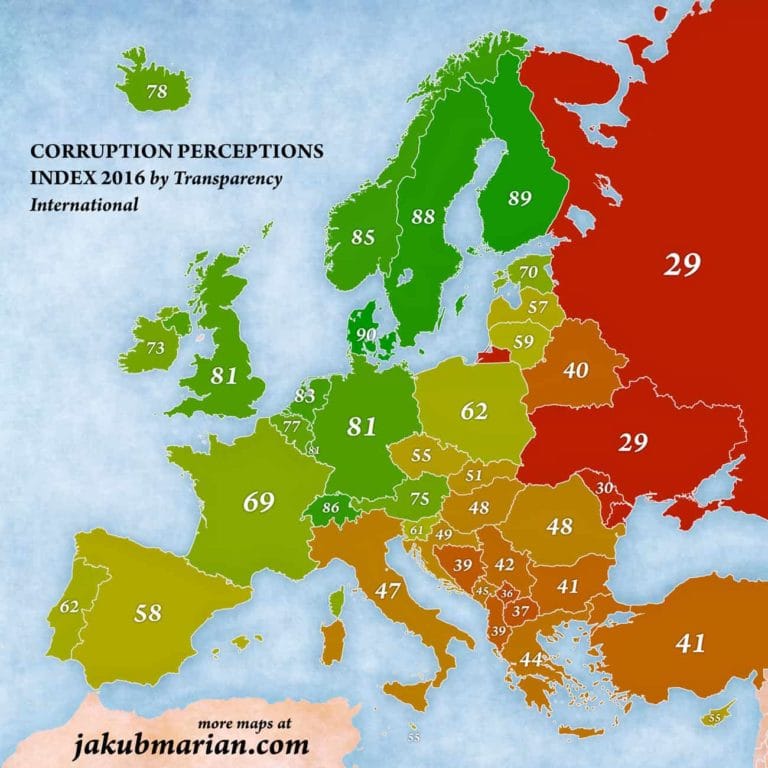To get a better understanding of the circumstances Greece is facing, we've compiled this short PESTLE analysis of Greece.
Greece has something of a reputation in the European Union, following its severe debt crisis in 2009. Although the country is still plagued by numerous Economic setbacks, it boasts a powerful tourism industry, great technological infrastructure, and very reasonable environmental policies. To get a better understanding of the circumstances Greece is facing, we've compiled this short PESTLE analysis — reviewing the Political, Economic, Sociocultural, Technological, Legal, and Environmental factors affecting the country.
Political
Here are the Political factors affecting Greece:
Governmental Instability
Unfortunately, the Political landscape in Greece can only be described as unstable. In the last decade, there have been multiple administrative shake-ups across all areas of government. During that period, the role of Prime Minister has changed hands at least seven times, with the ruling government party changing with every new PM. This statistic alone demonstrates the widespread political disagreement in the country, and has definitely contributed to Greece's poor Economic performance in recent years (discussed below).
Corruption

Aside from being unstable, the Political scene in Greece is rife with corruption. Although corruption is typically kept hidden, the non-governmental organization Transparency International found enough evidence of corruption to say that it played a "major role" in the country's recent economic recession. Tax evasion, which comes hand in hand with corruption, is believed to account for tens of billions of Euros in uncollected tax revenue every year.
Schengen Area
Greece is a member of the Schengen Area, a group of European countries through which residents can freely travel, without the need to pass through passport or other border control. While not a major factor, this makes entering the country easier for tourists, and leaving it easier for emigrants.
Economic
Here are the Economic factors affecting Greece:
Government Debt
Kindled by the 2007/2008 global financial crisis, Greece fell into a major Economic recession starting in 2009. A major reason for this was the country's major spending deficits, which were often underreported by officials. This sudden increase in government debt, together with the Greek population losing trust in its government, caused both citizens and investors to lose faith in the country. As in many major Economic crises, this led to large numbers of individuals trying to pull money out of banks and sell investments, thereby reducing Greece's ability to cover its deficit with loans. In the end, the country had to accept multiple bailouts and still hasn't recovered fully.
Unemployment
As a result of its recent Economic crisis, Greece has continued to struggle with the issue of unemployment. Greece has an unemployment rate of 18%. While this is a fair amount below its peak unemployment rate of 28% (following the debt crisis), it's still the highest unemployment rate in Europe — a fair fraction higher than the 14% unemployment rate in Spain or the 11% unemployment rate in Italy. This high unemployment rate continues to plague the country's economy, as more and more families are placed under considerable financial stress.
Tourism Industry
From an Economic perspective, one of Greece's greatest strengths is its thriving tourism industry. Greece is a popular tourist destination not only for travellers within Europe, but also globetrotters from all corners of the Earth. Attracting more than 20 million travellers every year, tourism is estimated to be responsible for 10 to 20% of all employment in the country. Since tourism involves money from outside the country, this industry is little affected by the Economic recession discussed previously.
Sociocultural
Here are the Sociocultural factors affecting Greece:
Dependency Ratio
Standing at around 57%, Greece has a relatively high dependency ratio. Dependency ratio is a measure of the fraction of the population which is unable to provide for itself as compared to the fraction of the working population. Although a dependency ratio around 50-60% is not at all abnormal in developed countries, it may hinder the country's ability to recover from Economic setbacks — since fewer individuals produce GDP for the country.
Culture
In much of Europe, Greece is regarded as having both rich culture and heritage. From its varied food to its legendary, ancient history, many tourists find Greece a fascinating country for this reason. With numerous historical artefacts and places — including the Parthenon and others — Greece has significantly deeper cultural and historical roots than many other European countries in the area.
Technological
Here are the Technological factors affecting Greece:
Infrastructure
Economic setbacks aside, Greece is still a very well-developed country. This means it has great technological infrastructure, from plenty of cell towers to reliable power networks. As such, citizens and tourists alike can rely on the same high level of digital connectivity as in any other European country. Digital nomads, tech startups, and everyday citizens can all leverage modern technology thanks to this infrastructure.
Legal
We couldn't find any notable Legal factors affecting Greece.
Environmental
Here are the Environmental factors affecting Greece:
International Treaties
As a member of the European Union, it's no surprise that Greece has signed numerous international agreements on environmental conservation. These govern environmental concerns such as air pollution, ozone layer damage, and disposal of hazardous waste. Overall, this means that Greece actually stands within international expectations for environmental policy.
PESTLE analysis of Greece: Summary
Aside from being a member of the European Union and, consequently, the Schengen Area, Greece certainly doesn't have anything to brag about with its Political situation. Unstable and rife with corruption, it's no surprise that the 2007/2008 global financial crisis hit Greece harder than anywhere else. Following its own debt crisis in 2009, Greece has been severely hampered with large amounts of debt and high unemployment rates. On the plus side, it still has a powerful tourism industry which can generate revenue through Economic climates good and bad.
Beyond that, it struggles to an extent due to its high dependency ratio, but thankfully has solid Technological infrastructure for future development. To close off on a positive, Greece is still an environmentally-conscious nation, showing that the citizens of this country are happy to look beyond their own immediate interests.


